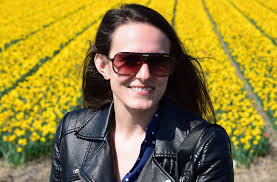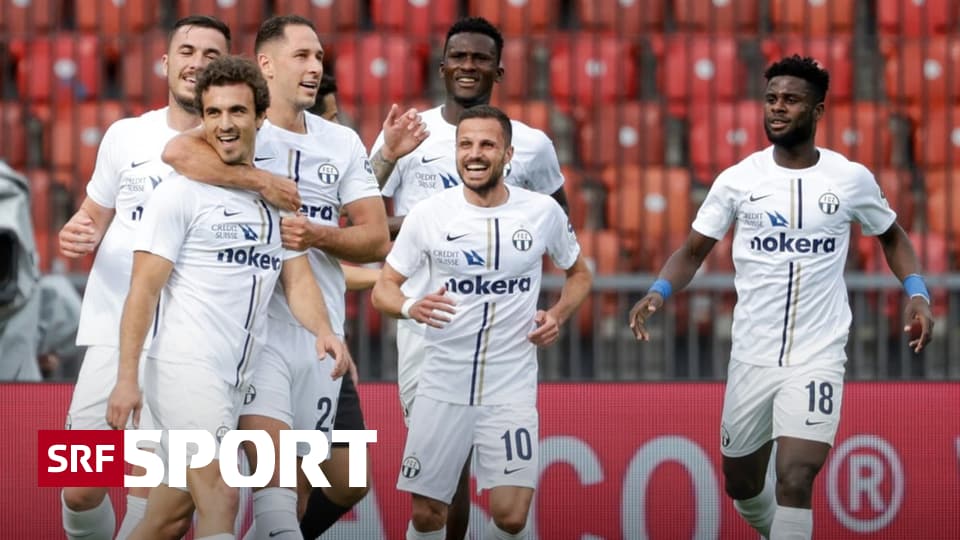Soccer stars like Jamaica’s Chyna Matthews, who take a selfie with fans at the World Cup in Perth, Australia, are the new girls’ role models.
Photo: IMAGO/AAP/Richard Wainwright
You are currently traveling across Australia doing a scientific study as a sports sociologist and you are seeing the World Cup in a different light because you are interviewing people everywhere. For any reason?
Women’s football has been making progress around the world for quite some time. More and more countries are professionalizing him, the media is paying more and more attention to him, and many fans are happy to see more. While the importance of the sport is similar across countries in men’s soccer, there are significant differences in women’s soccer, particularly due to cultural influences. We investigate how fan culture in women’s football in particular differs from that in men’s football in different countries.
They have a QR code under people’s noses in Australia to get them to answer an extensive questionnaire in English, Spanish and German. How is the response?
We noticed that in a gaming context it is relatively difficult to get fans to participate because before and after they have other interests than filling out a survey. That’s why we address people primarily near fan festivals or sports bars, but also in town, on the train, at the airport – where you can just talk to them. The more involved, the better. We are currently at 150 participants. But the World Cup is still going on.
They ask if players engage in underrepresentation or whether they exemplify values such as diversity, respect, and openness. Is this always a claim?
The questions and data we have formulated are the first results of a preliminary study in which we have already interviewed fans from Germany and Australia. We now want to validate this using a larger sample. Scientifically, some impressions are difficult to prove, for example, you will have to measure exactly how long men and women spend after mistakes.
Anyone looking around the stadiums immediately gets the impression that there is diversity among the visitors.
Yes. You see families with children, youth and adults, women and men in the stadiums. You get the feeling it’s a colorful mix, all pursuing the common goal of supporting their players. They want to have fun together. It is also characteristic that the players love to communicate with the masses and deal frankly with a lot of topics.
Even with homosexuality.
This is just one of many. One of the reasons women’s football fan culture considers itself so inclusive is that everyone is welcome, regardless of gender and sexual orientation. It is not usually found in men’s football, where, for example, homosexuality is still a taboo topic for players and fans. It’s different in women’s football. Most soccer players are open about their sexuality. Fans who identify with the LGBTIQ community value having a sport where they feel accepted regardless of their sexual orientation and gender.
In some World Cup matches, the atmosphere was not very different from the men’s, for example when Colombia played. The term “toxic masculinity” appears in the questionnaire. Why?
This classification was used by many of the respondents in our initial study. Toxic masculinity here means very dominant and aggressive over violent behavior, which is seen as typically masculine, but of course can also be experienced by women. You have to differentiate the behavior of the Colombian fans. This is normal in their fan culture and is a sign of good entertainment and should not be equated with aggressiveness. Whistles and boos are often just part of the conversation in South America.
How do you personally view the World Cup?
I was disappointed here at first because there was relatively little atmosphere outside the stadiums and miles of fans. This is also due to the fact that only Matildas, Australian footballers, are shown on free TV. Others can only be seen through the payment service, which is probably why not many Australians have heard of the World Cup at first.
Perhaps because football is not the top priority in either of the two host countries, but rather rugby?
No national sports are different, but lack of vision is the main problem for me. What does not appear does not exist in consciousness. Let’s just imagine that ARD and ZDF did not broadcast the World Cup in Germany. Then there will be much less interest. But now the Australians are very much starting to reach the quarter-finals: Sam Kerr is a superstar on this continent. You can tell that many girls admire her and want to imitate her. These identification numbers are very important. Girls especially need such football role models in order to break old stereotypes. In this regard, Matilda has achieved a lot.
How do you explain the fact that women’s football has a different status in different countries?
Of course, this has to do with the cultural significance of sports, and soccer in particular. In my view, football is still seen by many in Germany as a classic men’s sport, while Australia speaks more of a ‘beautiful game’. Football has an almost feminine connotation here. In Australia, women’s football is more popular than men’s football. In the United States, women also achieve significantly more success in soccer than men. In Arab countries, it was and sometimes is difficult when girls want to play football. So there are differences in access to the sport.
Remarkably, sports science, sports medicine and sports sociology have done little to deal with women’s football in Germany. You are plowing an unexplored land.
We are already talking about the data gap in this regard. Science is also primarily interested in men’s sports. But that is changing. Interest in women’s sports is growing in both society and science. Meanwhile, in the course of many discussions about equal pay and equality, it has been recognized that sports can provide an impetus for changes in society. That’s why we need research on women’s sports, fans and fan culture.
Could the German team’s early exit mean that the boom that started with emerging markets in England is now waning?
I don’t think an unexpectedly early exit will have a negative impact on German women’s football. Even in times of crisis, fans remain attached to their players and clubs. But I suppose that the potential that was there during the World Cup, for example to promote women’s football and get people excited about it in Germany, cannot be used optimally.
You and your teammate watched the German elimination in the Fan Zone. What kind of reactions have you had since then?
There were only a handful of German fans in the Sydney fan zone, but there was bewilderment and disappointment. However – and this is reflected in both conversations and discussions on social media – the need for analysis and explanations prevailed. We hope that dealing with potential omissions will help put the national team back on the road to success. This is what everyone wants.
And who would be the new world champion without the Germans?
Best question for last (laughs) As potential title winners, I have teams from Japan and Great Britain as the best team on the list.
interview

private
Christiana Schallhorn is junior professor of mathematical sociology at the Johannes Gutenberg University Mainz. The 39-year-old is conducting a survey at the Women’s World Cup in Sydney and Melbourne, Australia, to find out how important women’s football is in different countries. For years, she has been researching reports of major sporting events and their impact on audiences. She analyzed the media coverage and perception of the host country in Germany for the 2014 World Cup in Brazil.
Become a member of the second Genossenschaft!

From January 1, 2022, Al Thania will be published as an independent left-wing newspaper owned by the workforce and readership. Be out there and support media diversity and visible leftist attitudes as a member of the co-op. Fill out the membership form now.
More information about www.dasnd.de/genossenschaft

“Internet nerd. Avid student. Zombie guru. Tv enthusiast. Coffee advocate. Social media expert. Music geek. Professional food maven. Thinker. Troublemaker.”





More Stories
Third win in a row – including a shudder at the end: FCZ beats Lugano 2-1 – Sports
Sweden and Canada are in the quarter-finals
Motherwell vs St Johnstone: Scottish Premiership – BBC Sport